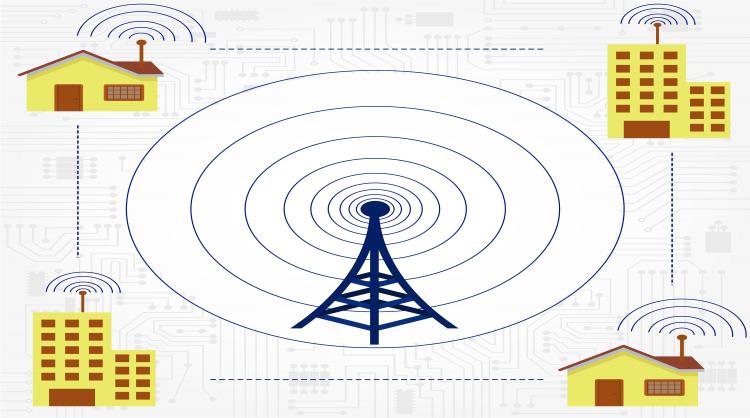Intense FCC Partisanship Becomes Public and is Harming the Industry
January 22, 2016 | by Andrew Regitsky

We’ve talked before about how the FCC’s partisan divide is hurting the industry. It has clearly caused regulatory uncertainty, made new product offerings more complex and could potentially dampen future Internet and infrastructure investment. The partisan divide exists over all the most important telecommunications issues, including Internet regulation, broadband deployment, universal service and special access.
Internal emails recently released through the Freedom of Information Act (FIOR) have demonstrated that relations between FCC commissioners have become so bad that the Democratic Chairman will not circulate draft orders to the Republican commissioners until just hours before the order is scheduled for a vote. That is ridiculous! Now this partisan divide, which was so obvious to those of us who follow the Commission, has become public, which can only make matters worse.
In a recent C-SPAN interview, Republican FCC Commissioner Ajit Pai claimed that the partisan differences at the Commission are unprecedented. He noted that almost half of the votes during the last year have been strictly along party lines, while historically the number was more like 10 percent. Pai said that on enforcement issues, there have been more party line votes in the last 14 months than in the previous 43 years. He was especially upset with the Commission’s recent demand that ISPs offering zero-data plans (in which participating edge provider content does not count against a customer’s data cap) were forced to meet with the Commission to defend their services.
What we are now seeing is that net neutrality has morphed from a concern about last-mile connectivity to the FCC micromanaging all kinds of business plans and hauling in companies to flyspeck whatever innovative service offerings they might choose to put out into the marketplace.
In November, FCC Chairman Tom Wheeler stated that T-Mobile's Binge On zero data service was a highly competitive and innovative service. However, just two months later T-Mobile was summoned to the Commission to defend Binge On. Pai called that the very definition of regulatory uncertainty, saying that the company should be allowed to offer it service without government interference.
According to Pai, the Commission has set the precedent that "if a band of special interest groups inside the Beltway decide to protest a particular offering, the agency is going to jump to the tune."
In addition, Pai argued that the Commission's recent conclusion that broadband was not being deployed in a reasonable and timely fashion totally self-serving. That is because under the advanced services section of the Telecommunications Act - section 706 - a negative finding gives the FCC more regulatory authority over broadband. He said that this is simply the latest of an ongoing shifting of the goalposts depending on what the policy goal is.
In response, Chairman Wheeler’s office defended the Commission’s actions. They claimed that since he became Chairman, Wheeler has tackled many complex issues such as net neutrality and the Commission’s actions have resulted in “more competition, strong protections and improved access to networks for consumers,"
Regardless of which side is right, it appears that 2016 will be a year of increased activism for the Commission and a continued partisan divide. We are likely to see more individual business plans scrutinized to ensure they comply with the Open Internet rules. Broadband will almost surely be incorporated into the Lifeline program with public disagreements about how it should be paid for. The adequacy of broadband deployment will also continue to be a partisan issue. 2016 should also be the ultimate battle over ILEC special access offerings, including whether additional regulation is needed and optional payment plans are lawful.
One unacknowledged problem the Commission faces when all its important votes are decided on a 3-2 vote based strictly on party lines is the increased difficulty in defending its actions in court. It is challenging for the Commission attorneys to argue that a particular action is lawful when in the dissent to the vote, Republican commissioners have picked that argument apart and have concluded the majority’s action to be arbitrary and capricious.
Of course, if a Republican wins the presidency this November, Democrats will then become the minority on the Commission. It behooves them to act in a way to be inclusive to help cement their actions. However, at this point it appears that the damage has been done and many recent Commission actions may change drastically under a Republican regime. That is why, while not getting anywhere near the publicity of the impact of a new president on the US Supreme Court, his or her ability to control the FCC in 2017 and beyond can have an equally profound impact on the country. It should be a very interesting election!
By Andy Regitsky, CCMI

